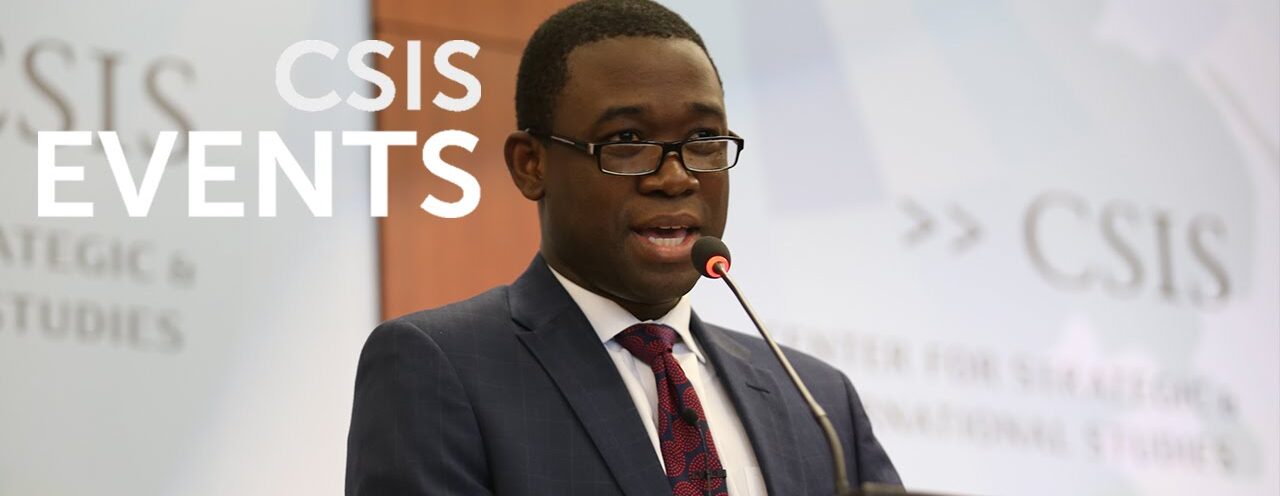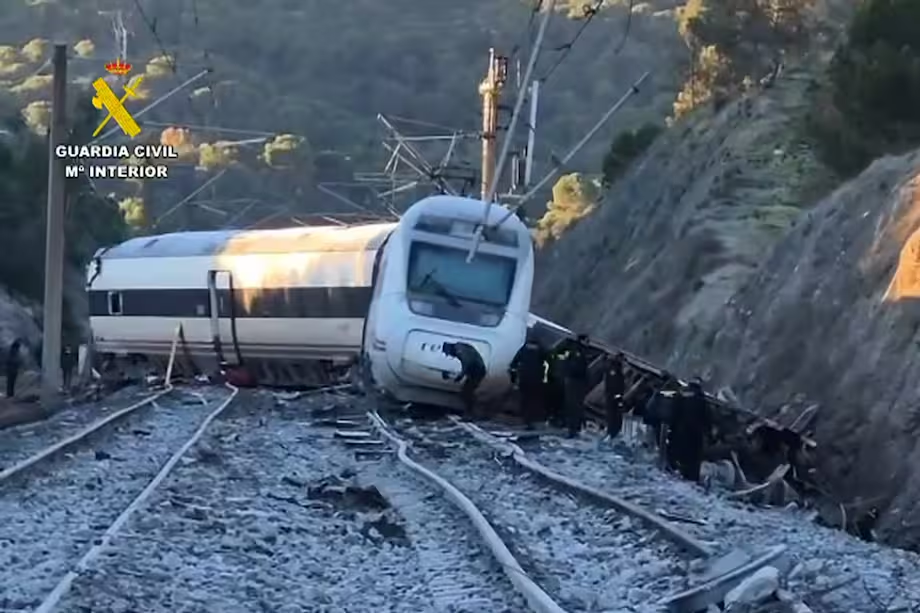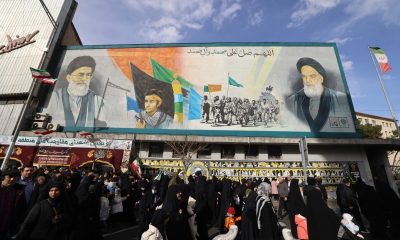International
US calls for ‘global effort’ to combat cybercrime

AFP
A top US Treasury official on Tuesday called for a “global effort” to combat cyberattacks and to prevent criminals from holding computer systems for ransom.
“It’s going to be critical that we not only do this in the United States, but that we have a global effort because many of these cyber criminals are domiciled outside of our country,” Deputy Treasury Secretary Wally Adeyemo said.
Governments, companies and individuals must focus on cybersecurity “to prevent criminal actors from being able to get into their system, and potentially use them to ransom.”
He testified before the Senate Banking Committee to present a Treasury report showing that growing use of cryptocurrencies outside of traditional payments systems undermines the effectiveness of US economic sanctions.
“Our goal ultimately, is to make sure that payments do not flow into the hands of criminal actors and … don’t flow into the hands of those people who have been sanctioned by the United States,” Adeyemo said.
Treasury sanctions work by blocking targets — individuals, government officials or companies — from using the US financial system, which in effect cuts them off from banking or profiting from trade in most of the world.
But the Treasury review said digital currencies and alternative payment platforms provide a way to skirt sanctions by moving funds and hiding profits outside the traditional dollar-based financial system.
The official said “it is true” that China is “trying to find means around our financial system to avoid sanctions.”
But “by taking actions in unison with other countries” governments are better able to “hold our adversaries accountable for actions that they take that are in violation of international laws and norms,” he said.
Asked about Afghanistan, Adeyemo said it is “essential” to maintain economic sanctions against the Taliban but also to “find ways for legitimate humanitarian assistance to get to the Afghan people.”
“I see under no situation in which we would allow the Taliban to have access to the reserves that belong to the Afghan people,” he said, referring to Washington’s decision to withhold about $9 billion of the nation’s reserves held overseas.
The Treasury report showed use of sanctions increased tenfold over the past two decades since the attacks of September 11, 2001, with 9,421 designations this year compared to just 912 in 2000.
International
Germany says football bodies alone will decide on possible World Cup boycott

The German Football Association (DFB) and FIFA will decide with full “autonomy” whether to boycott the upcoming World Cup, which will be hosted mainly by the United States in six months, following threats made by former U.S. president Donald Trump, the German government told AFP on Tuesday.
Trump has threatened to seize Greenland and impose higher tariffs on European countries that oppose the plan, raising political tensions between the United States and Europe.
“This assessment therefore lies with the relevant federations, in this case the DFB and FIFA. The federal government will respect that decision,” Sports State Secretary Christiane Schenderlein said in a statement emailed to AFP.
AFP had asked the German government about the possibility of a boycott of the World Cup to be jointly hosted by Canada, the United States and Mexico from June 11 to July 19.
“The federal government respects the autonomy of sport. Decisions regarding participation in major sporting events or possible boycotts fall exclusively within the responsibility of the relevant sports federations, not the political sphere,” said Schenderlein, a member of the conservative CDU, the party of Chancellor Friedrich Merz.
International
Daily Mail publisher insists reports relied on legitimate sources amid privacy trial

Two British tabloids accused of phone hacking and other forms of “unlawful information gathering” against Prince Harry and six other individuals, including singer Elton John, insisted on Tuesday that their reporting relied on legitimate sources.
Associated Newspapers Ltd (ANL), the publisher of the Daily Mail and The Mail on Sunday, sought to rebut allegations of privacy violations through illegal methods on the second day of trial at London’s High Court, following a lawsuit filed by the seven claimants.
Prince Harry, 41, who attended court hearings on both Monday and Tuesday, could be called to testify starting Wednesday in a trial expected to last up to nine weeks.
Lawyers for the claimants said the alleged illegal activities took place between 1993 and 2011, with some incidents reportedly extending as late as 2018. They argue that the tabloids hired private investigators to intercept phone calls and obtain confidential information, including detailed phone records, medical histories, and bank statements.
However, Anthony White, counsel for ANL, told the court that the trial would show the company presents “a compelling account of a pattern of lawful source acquisition” for its articles.
White added that the claims would require the court to believe that journalists and staff at the tabloids had engaged in widespread dishonesty, which the company strongly denies.
International
Death toll from southern Spain train crash rises to 40

The death toll from the train accident that occurred on Sunday in southern Spain has risen to 40, according to investigative sources cited by EFE on Monday afternoon.
Since early Monday, search operations have focused on the damaged carriages of a Renfe train bound for Huelva, which collided with the last derailed cars of an Iryo train traveling from Málaga to Madrid after it left the tracks.
The crash has also left more than 150 people injured. Of these, 41 remain hospitalized, including 12 in intensive care units at hospitals across the Andalusia region.
More than 220 Civil Guard officers are working at the site, searching the railway line and surrounding areas for key evidence to help identify victims and determine the causes of the accident.
The tragedy has revived memories of the deadliest railway disasters in Europe in recent decades. In Spain, the most severe occurred on July 24, 2013, when an Alvia train derailed near Santiago de Compostela, killing 80 people and injuring 130 others.
At the European level, the worst rail disaster took place on June 3, 1998, in Eschede, northern Germany, when a high-speed train struck a bridge pillar at 200 kilometers per hour, resulting in 98 deaths and 120 injuries.
-

 International3 days ago
International3 days agoU.S. deportation flight returns venezuelans to Caracas after Maduro’s ouster
-

 Central America2 days ago
Central America2 days agoGuatemala prison uprisings leave 46 guards held by gangs
-

 International1 day ago
International1 day agoDeath toll from southern Spain train crash rises to 40
-

 International4 days ago
International4 days agoCanada accuses Iran of killing its citizen during anti-government unrest
-

 International4 days ago
International4 days agoSheinbaum highlights anti-drug gains after U.S. says challenges remain
-

 Central America1 day ago
Central America1 day agoGuatemala raises police death toll to nine after gang violence escalates
-

 International1 day ago
International1 day agoOver 160 christian worshippers kidnapped in Kaduna Church attacks
-

 International2 days ago
International2 days agoChile declares state of catastrophe as wildfires rage in Ñuble and Biobío
-

 International3 days ago
International3 days agoFormer South Korean President Yoon sentenced to five years in prison
-

 International1 day ago
International1 day agoSpain’s Prime Minister pledges transparency after train crash kills at least 39
-

 International6 hours ago
International6 hours agoGermany says football bodies alone will decide on possible World Cup boycott
-

 International6 hours ago
International6 hours agoDaily Mail publisher insists reports relied on legitimate sources amid privacy trial


























